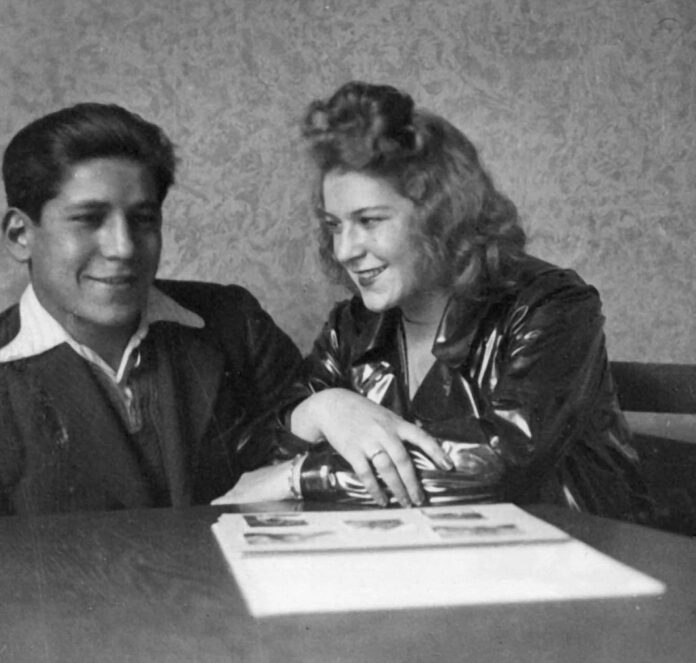According to a note that appears on-screen early in the film, Helen Ciesla Covensky and David Chase (originally Hanka and Dudek Ciesla) never spoke with their families about their experiences during World War II. But they were both interviewed at length by the Shoah Foundation in 1997. Covensky died in 2007 and Chase in 2016, so neither was able to participate in this movie.
Covensky and Chase were children of an affluent Polish Jewish family that lived near the German border. Their mother was a linguist whose children were familiar with several languages, including German (soon to be very useful). Equally crucial was that they didn’t speak Yiddish at home, so they couldn’t be identified as Jewish by their accents.
Soon after the German invasion of Poland, Covensky was separated from the rest of the family. She managed to get a fake ID that identified her as gentile, and spent much of the war in relative safety as a forced laborer in a munitions factory in Germany.
The others were confined in a ghetto and eventually sent to Auschwitz-Birkenau, where the siblings’ parents and younger sister were killed. As Russian troops advanced, Chase and other surviving prisoners were moved west. He escaped from a march to his likely death and found refuge when he encountered a Jewish U.S. Army officer.
Although much of what they recount is appalling, Covensky and Chase tell their stories calmly. Covensky is particularly upbeat, often smiling and laughing. Chase concludes by describing his life as “a pocketful of miracles.”
After Germany’s defeat, Covensky became an interpreter for the Americans and then took a job with the United Nations refugee agency in Berlin. She met, and soon married, Harold Kempner, an American military journalist and the director’s father. (Covensky is the name of Helen’s second husband.) Covensky and Chase were reunited in Berlin, and both emigrated to the United States. Chase became a wealthy businessman and philanthropist in Hartford, Conn., and Covensky an acclaimed artist in Detroit before following her daughter to Washington.
Writer-director Kempner and editor and co-writer Lucia Fox-Shapiro interweave ample excerpts from Covensky’s and Chase’s Shoah testimonies, punctuated by archival film clips and expressionist artworks that depict existence in Nazi concentration camps. In the section that covers the siblings’ postwar lives, photos and film document their connections to such diverse figures as Rosalynn Carter, Pope John Paul II and Lech Walesa, and illustrate the successes of Covensky’s and Chase’s respective careers. Photos of grandchildren and great-grandchildren document a different sort of legacy.
For Kempner to pose any questions to her mother and uncle was impossible, but “A Pocketful of Miracles” would benefit from comments from some of their descendants. Kempner could have asked them about how Covensky’s and Chase’s reticence affected their relationships with others, or for reactions to the life stories shared with the Shoah Foundation (but not their offspring). She might have put herself in front of the camera to reflect on what she didn’t know before, but now does.
Kempner and I are not close friends, but I know her well enough to be certain that she is not shy. So perhaps she left her thoughts out of the film because she didn’t want to intrude on her mother’s and uncle’s reminiscences, or because she felt that anything she could add would be inadequate next to the horrors they experienced. The result, however, is a film that seems detached from the events it recounts. It provides facts but shortchanges feelings.
Unrated. At the Avalon. Contains photos of and testimony about genocidal violence. 105 minutes. The theater will host Q&As with director Aviva Kempner and other guests following the 7:30 p.m. shows on Oct. 20-23.



